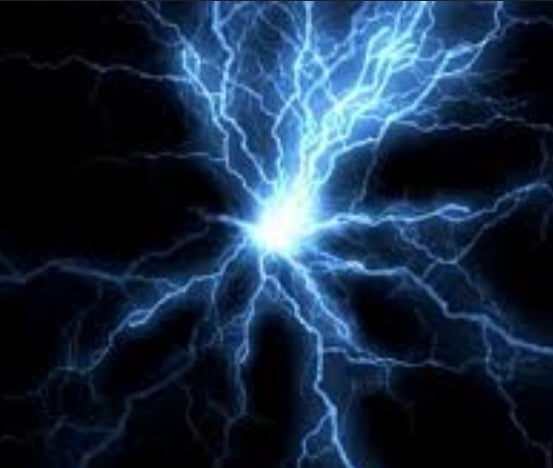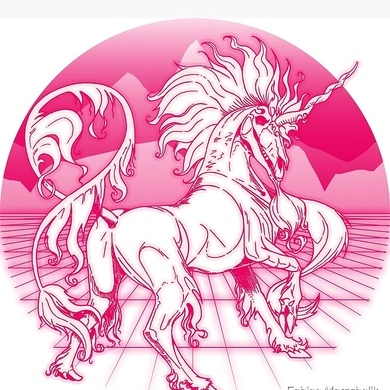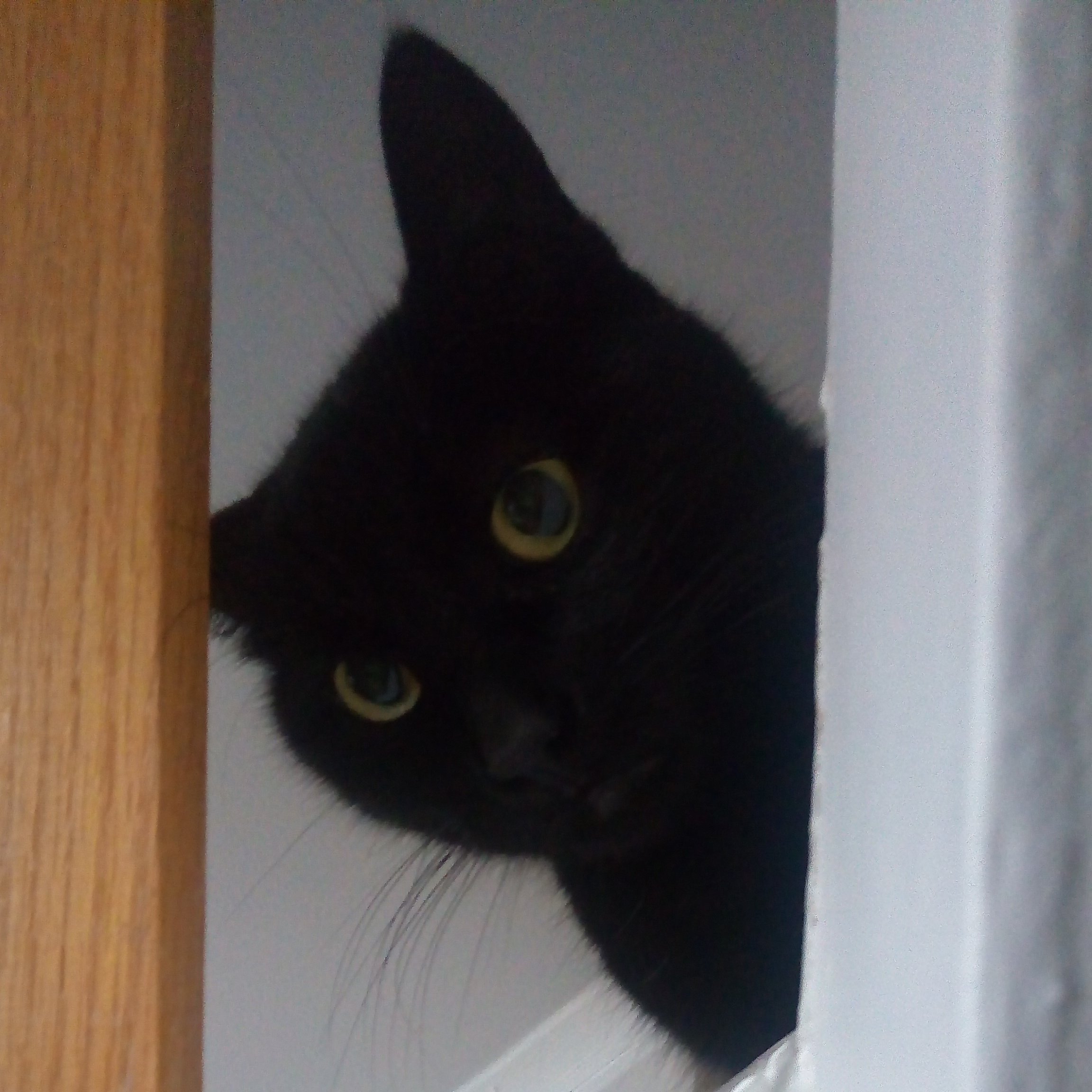This is literally why we have apex predators such as wolves. They help clamp down on the old and the sick so that prions (mad cow disease) does not spread to other species or humans. It cannot infect wolves.
When you kill off all the apex predators, like when Montana governor Greg Gianforte authorized the massacre of 100 wolves, you see explosions of extremely dangerous diseases and land degradation as deer damage tree roots, gardens, meadows, streams, and farms.
Not only that, but killing members of wolf packs causes their families to fall apart and everyone to scatter. That means wolves alone. Which cannot hunt pack animals which require coordination. So then they go after the easiest meal: dumbass farm animals who have zero survival instincts and whose ranchers no longer employ people to look after the herds in great enough numbers like the olden days. The cycle then perpetuates, as mad-cow contaminated soils spread and spread…
Damn… It’s almost like we should leave mother nature the fuck alone
The more we learn, the better it will be for all species. We’ll figure it out eventually… or die out
Die out. Look at the weather patterns. We done fucked up.
Could be! I’ve spent the last 3 or so years with little to do but think, read, argue and watch youtube. I tend to watch mostly educational content, ranging from the big ones (“nile red”, “veritasium”, nutshell I can’t spell, “world science festival”) to lesser known ones (“sci-show”, “fall of civilizations”, “economics explained”, “donna” and a bunch of others). Robert Sapolsky is amazing, btw, look him up if you don’t already know who he is. But anyway, most recently I learned about the last 5 mass extinctions in a video by “paleo analysis”
Anyway…
I think many people will die in the upcoming climate crisis (and are already dying) but I don’t think humanity itself will completely die out. I mean, we are not the pinnacle of evolution that some people would like to think, and we’re still changing and likely will continue to do so as our environment changes. But die out completely? Prrrrrobably not. As a species we’re highly adaptive (even though some idiots in power hold us back) and I think that at least enough of us will survive to continue the species.
Maybe not, but I think we have a shot that’s no more unlikely than anything else that’s happened so far
I wouldn’t call economics explained or sci-show “lesser-known”, they’re some of the most popular “educational” youtubers out there now… (although a lot of the times i would find it more accurate to call economics explained videos opinion pieces based on faulty claims/sources rather than educational videos)
Which would you recommend? I don’t mind dry, but I have issues with accents. I like Anton Petrov’s videos but I find it difficult to understand him (as an example)
Eh, beg to differ. It’s our industrialist society imo.
Native Americans were shown to actually improve the ecosystems they inhabited through permaculture. We’re not doing the same practices like we should nowadays.
Can’t infect wolves? I’m no expert here but I don’t feel like a vertebrate mammal with a brain could be completely immune to prions. Do you have any more information on that claim?
It’s in the OP article. They haven’t found any infections yet, and it doesn’t appear to affect them. Apex predators have, prior to human intervention, always hunted the old, the young, and the sick. Mother nature appears to have found a way around apex predators all dying from disease to balance the environment.
Afaik it’s because they naturally die before the disease becomes crippling. Or it becomes crippling around or after the normal lifespan of the animal. It doesn’t mean they aren’t affected, it means it doesn’t affect them before they would normally die…
Please don’t anthropomorphize “mother nature”. Mother nature doesn’t think, or make decisions, it is a natural progression of life and death… There is a process and a cycle to much of it, hand waving “mother nature finds a way” ignores and dismisses the reality of it, and excludes the science that helps us understand how our world actually works.
I believe canines were found to be resistant to prion diseases, as they evolved to eat all manner of sick, dying and dead animals. Likely something to do with digestion, gut barrier or blood-brain barrier. Canines are pretty unique in their ability to eat almost anything that was once alive without getting sick.
CWD is a very fast acting disease compared to most prison diseases, and should easily become visible during the lifespan of a dog or wolf.
Scavengers like Hyenas and Vultures too. Vultures even have some strange adaptations to take care of their feet when feasting on scavenged carcasses. Their GI tracts are wild.
And opossums
Those things are fucking indestructible
Can’t… Infect… Wolves?
You do know that prions aren’t living things right? They don’t “infect”, they are a physical change to a compound (protein) that spreads to other similar compounds it touches. It’s not a virus, or a bacteria.
Unless wolves lack the same proteins that deer also have? Usually this is a mammal thing, not a species thing.
I think the meaning of the word in context was clear enough.
So far CWD is a disease that only affects members of the deer family. So wolves are not going to get it in its current form
Yeah! Fuck deer!
If a mad-cow-like disease jumped the barrier to humans and began spreading through Americans, the main problem in eradicating it would be that basically no one would be able to tell the difference from the average ‘Enthusiastic’ Republican Voter and someone whose brain is melting due to an actual pathogen.
Lucky for us prions do not spread except via ingestion…
Realises that we wanted to eat the rich
We’re actually not sure about that. Some prions do spread by eating the meat of infected animals, but I think we can be pretty sure that’s not what’s happening in a wild deer population. Prions can also be found in the environment, including deposited on grasses and plants, where that can last a very long time.
We do not know if this disease is or will become communicable to predator animals or what the potential is for environmental spread to livestock. We do know a bit more about the BSE than some others, but there’s a bunch we know exist that we know little to nothing about, and it’s guaranteed there’s more out there that we haven’t encountered yet.
Deer can and do eat meat when available
Occasionally they do consume meat as far as I know (as several herbivores do), but if that were a serious candidate it would be among the principle lines of transmission being investigated.
Zoonotic diseases are investigated by cross-disciplinary teams with experience ranging from public health and disease experts to wildlife biologists and ecologists. I did some work on a similar topic with the National Parks Service so I know a bit about how these are approached. I have no involvement with this and I’ve never worked on prion contagion models - like I said, we just don’t know. But I do have experience in the area.
Prions have been found in soil, on grass and plants, and do not get quickly degraded by sun and rain. We do know that this disease is density dependent, so you’d need a model of deer going carnivore and cannibal in a density dependent natural model, which is not a phenomenon I’m familiar with.
So what I’m saying is that we just don’t know what the deer-deer vector is or if a predation vector exists as a secondary transmission or if one will appear.
Cool information thanks. Yeah wasn’t trying to say that that’s definitely how it’s spread but most people don’t know that they’re opportunistic carnivores!
Just eat the meaty parts, avoid the brain and spinal cord and you’re all good.
The problem is that the brain is the part you want to splatter all over the Italian marble floors of their mansions.
New plan live butchering so that the brain and spine is still intact and no need to worry about Mad Bougie disease.
so Sub Zero’s fatality?
What a fuckin left turn from science to comedic genius Bravo!
I don’t think enough people are eating venison regularly for a this prion to be a serious threat even if it manages to transmit to humans
Have you seen zombie movies? It only takes ONE unassuming hunter… and then it immediately mutates into blah blah magic nonsense ensues…
and then it is airborne, and bloodborne
…
You are correct of course. =P
Reminds me of train to busan because of the opening lol
Shoot an infected deer in the head or have it otherwise die violently on the ground. Prions can last in the soil for years and years. Misfolded proteins are basically invulnerable, even in shit like autoclaves. If cows eat grass that has prions on them, that shit could potentially jump. And a lot of people ranch their cattle on public lands where infected deer are, and where wolves are unavailable due to politicians, who would otherwise prevent infected deer from spreading.
The best thing that we can do is have wolves clamp down on the few infected deer immediately rather than generate large pools of infection that then start cross-contaminating domestic livestock. Prions and ebola are the two things that really keep me up at night.
Interesting, I didn’t know prions lasted so long on bare soil. I don’t imagine it’s a simple thing for a prion to jump from animal to animal though. Certainly not any less complex than jumping to humans? Right?
I’m not well-versed enough on prions to make an incredibly informed opinion. Apex predators somehow have managed to survive it for eons, though. Prions are extremely odd, and I’m sure one day we will figure out how to reverse their effect. There are some theories that prions could have formed the basis for life if life was seeded by asteroids, as they are incredibly resilient to heat, radiation, chemicals, etc.
From the CDC’s website, it looks like CWD might not affect canids and might not affect humans, as we are just too different from the cloven-hoofed forest puppies. But much like consuming fish parasites that don’t affect humans, it seems they don’t recommend eating sick animals just on the off chance that you are patient zero for a new, fun, lethal protein :)
Deer arent eating venison regularly enough to explain the rate of its spread among deer.
Its moving through them someplace else. Which means if it jumps to us, its moving through us someplace else too. And we dont actually know for sure how its moving through them.
It probably depends on where you are, different parts of the country and different social circles have more or less hunters and different hunting cultures.
I know that around me in the circles I run in I pretty much everyone I know either hunts or has a friend (or multiple friends) who does and can/will hook them up with venison now and then.
If you have a couple hunters in a family, they fill all of their tags, are generous about sharing their venison with family and friends, if they’re unlucky enough that those deer have CWD, then that could potentially be dozens of people exposed.
The mill I work at schedules their yearly maintenance around hunting season. First week both mills are down. Second week half and half.
Easy 80% of staff are gone hunting.
I say this as someone who regularly eats venison and lives in a place where it’s relatively common as well but it still isn’t nearly as threatening as something like mad cow. Pretty much everyone eats beef.
It’s a lot easier to tell people don’t eat venison you hunted and contain it than it is halt the entire beef industry and tag everyone who may have eaten it yk?
I’m not saying it wouldn’t be bad, only that we’ve been through much worse as far as prions go and one like this would be relatively speaking, less of a threat
fookin’ prions
Proteins are quirky… In a bad way
Poor Christopher Johnson & co. 🥹
From the little I’ve read on this it appears that the infectious cells favor a functional brain so that means all maga evangelical republicans are safe.
That’s not really a good news though. ;(
Without reading, is it Chronic wasting? I just checked in on that the other day and the CDC didn’t seem to think it was a big deal unless you are in a hotzone.
deleted by creator
Prion diseases can take decades to show symptoms, like with CJD, and are very hard to test for in humans.
It might not be a question of whether it can jump species barriers, but when we will know it did, which is why the CDC can’t and won’t ring any alarm bells, just advise caution, until it’s either too late for individuals or a confirmed non-issue.
There was a study that claimed it had jumped to chimps/monkeys in a testing environment but last I heard it was disputed, but that still leaves the average citizen with plenty of reason to not
Checks notes
Eat a diseased animal.
Source your venison, it should be tested if it’s from an affected area but you never can trust suppliers for wild game.
Consider just eating, you know, cow, or only venison from a trusted source.
Preferably the person that shot and had it butchered.
Consider just eating, you know, cow, or only venison from a trusted source.
Preferably the person that shot and had it butchered.
Eat the person who shot the deer? Dang that’s some extreme veganism.
Turn about is fair play 😤
Do you want to get Kuru? Because that’s how you get Kuru!
Only if you eat the uncooked brain iirc.
Fun fact, human is the only meat that can be vegan! They just have to consent to it
it’s still exploiting an animal. it’s not vegan.
edit: this user seems to think theyn can poison the well so that readers will be misled about what words mean. I encourage you to actually learn.
It’s not exploitation if they consent, that’s the entire point of veganism
Edit: instead of reading this entire ridiculous comment chain with commie consistently being wrong about everything they say, here’s the part where I won the argument
it is. consent has nothing to do with exploitation.
There’s also the option of just not eating venison if you’re really worried.
The issue is that deer dont eat each other often enough for that to be how they spread it among each other.
So whatever vector is moving it around in them, which we dont actually know yet, is the more likely risk of an actual jump. Cant not take a risk if you cant tell if its risky.
That’s disappointing
Oh its totally fine it’s not like we’ve made the planet warmer allowing viruses to mutilate easier and for longer or like how we haven’t been taking part in a centuries long destruction of the deers native habitat forcing them into populated areas right?.. Right?
It’s not a virus.
I mean, doesn’t that reinforce their point, since many other pathogens are even more touchy on heat?
It’s actually worse than a virus.
Once an environment is infected, the pathogen is extremely hard to eradicate. It can persist for years in dirt or on surfaces, and scientists report it is resistant to disinfectants, formaldehyde, radiation and incineration at 600C (1,100F).
The pathogen in question is a prion (a mutant contagious protein molecule)
deleted by creator
Seeing as most of us eat herbivores that feed on the foliage growing in infected soil, that’s an issue as well.
Not just herbivores. While unlikely, you don’t exactly want prions on your fucking spinach either. Infected deer and farm fields should not mix. You need apex predators ASAP.
Biologist here. That’s not where I’d put the association. I’m going to simplify things a bit because this is going to be a long post, but hopefully this will help.
I think you’re thinking about the effects of heat on proteins. We can destabilize macromolecules by heating them, sometimes causing permanent damage. That takes a lot of heat, though. The planet would be long dead before we had to worry about the environmental temperature denaturing proteins.
Biologist related joke: How do you unscramble an egg?
Feed it to a chicken.So, when the microscope was invented, people were startled to discover what were obviously living organisms in a drop of pond water. Discovery led to discovery, and we ended up learning about bacteria and the germ theory of disease. Some bacteria are really good (in that without them you would die), and some are really bad (like if you get infected you could die), but most are neutral. I do not believe there’s any direct connection between the global temperature and the rate of mutation in bacteria. That’s not to say there’s not a connection between climate change and disease rates. I’ll talk about that later.
So later on we discovered viruses. Viruses are much smaller than bacteria. While a bacterium is a cell with a whole physiology going on, a virus consists of a bit of genetic material bound in an envelope of proteins. The envelope will gain access to a cell and inject its genetic material, which the cell’s normal processes will start to work on, producing more viruses. Many people don’t consider viruses “alive.” I do, because I’m approaching it from a different direction. Again, the rate of mutation there isn’t really directly affected by a rise in global temperature, but there is a disease rate relationship.
We only discovered prions more recently. They’re even more simple than viruses. They’re really just a protein. We don’t understand them very well yet. The danger comes from the fact that prions can force other proteins to become copies of themselves. They can cause things like mad cow disease. They’re incredibly hardy and don’t mutate faster because of climate change. They’re very scary diseases with no known treatment and in some cases unknown transmission paths.
This one is a prion.
I think we can find correlations between disease in animals and climate change. Climate change forces animals into new environments where they can encounter diseases they’ve never faced before and to which they’re susceptible.
Even more important is the common root cause of industrialization and human expansion and environmental destruction. Again, forcing more animals together magnifies the impact of communicable diseases, and things like the use of antibiotics to make factory farming as profitable as possible has the inevitable consequences of making diseases that are harder to treat.
Thanks for the ELI5.
Apart from ingestion, are there any other known methods of transmission as far as prions are concerned?
One of the problems is that we don’t know. It might be environmental contamination (eg deposits on grass or in soil). Ebola patient 0 was thought to be a toddler-aged child who ate a piece of fruit that had been contaminated by dung from an infected bat (Ebola, like many of our diseases, is zoonotic). It’s also thought to potentially come from preparing meat from an infected animal. If it’s in the environment, it may also come from some social behavior, like grooming or wound cleaning. Could it be transmitted by parasites that jump from host to host drinking blood? No idea. I’m just spitballing based on how some other diseases become density dependent.
Prions are absolutely fascinating. I really hope they make a lot of progress.
Not this pathogen. Prions are not living organisms, not even as much as viruses, and are extremely resistant to both heat and cold. It’s the same stuff that caused the mad cow disease in Britain.
deleted by creator
These are actually the cause of Alzheimers
Are you saying prions cause Alzheimers? Last I heard we didn’t have a full understanding of what causes Alzheimers disease.
Very recent studies from 2019-2020 actually! Turns out prions are likely a key cause of Alzheimers. It’s specifically two proteins in our bodies turning into Prions!
The responsible proteins are the “Aß Prion” and the “Tau Prion”
That sounds like a huge development! I haven’t kept up with the research (obviously), last I remembered was that the plaque theories weren’t really panning out into successful treatments.
deleted by creator
Add it to “What else can fuck millennials?” pile.
who had zombie invasion on their 2024 bingo card?
Honestly, natural disaster/Apocalypse has been on mine since 2021
it’s always on my bingo card. i am a very hopeful person.
It’s nice to finally see some optimism.
A particularly concerning illness for me.
Just stop facing the deer and you’ll be okay.
Let’s face it dear : name checks up !
I believe it’s made the jump into a certain species of monkey in a lab environment last I knew, but the jump to humans hasn’t been seen and isn’t a given. This is a clickbait title. If you’re hunting game, make sure to get it tested with samples taken at a wildlife check station before consuming and you’re likely safe here.
scientists raise fears it may jump to humans
Who says it hasn’t? I mean, have you looked at our politics lately?
POLITICS! Amiright folks?!
I see we are lining up for a great 2024
Prions sounds like a very tiny, evil shrimp
Elders of Prion sounds like a bad 90s industrial.metal band
Found the Australian
Toss another prion on the barbie!
We don’t have shrimp.
And prawns are a totally different species.
And unfortunately I’m American
Here in Utah we have brine prions…er, shrimp. Commercially sold as Sea Monkeys. We have no need of these “brains” you speak of.
Yeah here we go! We all wanted a zombie outbreak and all we got was corona lockdowns. This is more like it! Bring it on!
/s
Oh deer
(╯°□°)╯︵ ┻━┻
┬──┬ ノ( ゜-゜ノ)
























